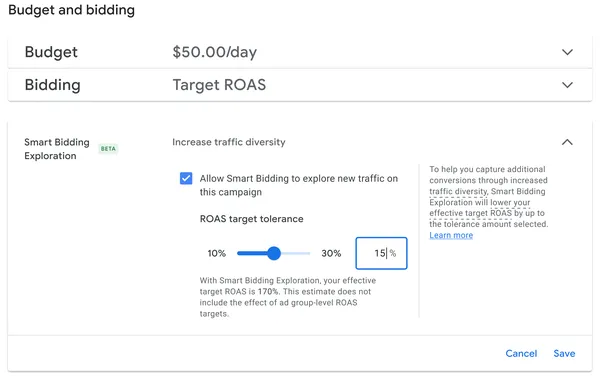The Role of Natural Language Processing in Financial News Analysis
The Role of Natural Language Processing in Financial News Analysis In today’s fast-paced financial markets, information is power. As the amount of news and data grows exponentially, investors, analysts, and financial institutions face the challenge of filtering and processing this information effectively. Here’s where Natural Language Processing (NLP) steps in. NLP, a branch of artificial intelligence (AI), is revolutionizing the way financial news is analyzed, providing investors with more timely and accurate insights. In this article, we’ll explore how NLP is used to process financial news, the benefits and challenges it presents, and what the future holds for this technology […]

The Role of Natural Language Processing in Financial News Analysis
In today’s fast-paced financial markets, information is power. As the amount of news and data grows exponentially, investors, analysts, and financial institutions face the challenge of filtering and processing this information effectively. Here’s where Natural Language Processing (NLP) steps in. NLP, a branch of artificial intelligence (AI), is revolutionizing the way financial news is analyzed, providing investors with more timely and accurate insights. In this article, we’ll explore how NLP is used to process financial news, the benefits and challenges it presents, and what the future holds for this technology in the financial sector.
Table of Contents
Understanding Natural Language Processing (NLP)
To grasp how NLP impacts financial news analysis, it’s crucial to understand the fundamentals of the technology. NLP involves training AI systems to process, understand, and generate human language in a way that makes it useful for various applications. It includes techniques like sentiment analysis, named entity recognition (NER), and text summarization, among others.
- Sentiment Analysis: NLP algorithms can analyze the sentiment behind a text, determining whether it conveys positive, negative, or neutral emotions. This is especially useful in financial news to gauge market sentiment.
- Named Entity Recognition (NER): NER allows AI systems to recognize specific entities in a piece of text, such as companies, industries, or important figures, and categorize them.
- Text Summarization: NLP can also extract key points from long pieces of text, providing concise summaries of lengthy financial reports or articles.
As AI in finance advances, NLP is becoming an increasingly powerful tool to extract insights from vast amounts of data.
The Growing Importance of Financial News
Financial news plays a crucial role in influencing market movements. Every major news outlet, whether it’s a business magazine, financial news website, or social media platform, contributes vast amounts of information daily. These news items can shape investor perceptions, sway stock prices, or even alter broader market trends.
However, the sheer volume of financial news can be overwhelming. Investors and financial professionals are often bombarded with hundreds of articles each day. Sifting through all this information manually would be an impossible task. This is where AI in global financial markets comes into play.
NLP allows for the real-time processing of financial news, making it easier to understand how market trends are evolving. It helps analysts, traders, and investors keep their finger on the pulse of the market and make more informed decisions.
How NLP Is Applied to Financial News Analysis
NLP is transforming financial news analysis in several key ways. Here’s a breakdown of the core applications:
- Sentiment Analysis: One of the most widely used applications of NLP in financial news is sentiment analysis. By analyzing the tone of financial articles, AI can identify whether the news is positive, negative, or neutral. This allows investors to gauge market sentiment quickly and adjust their strategies accordingly. For instance, a positive news article about a company’s quarterly earnings report could lead to a spike in its stock price, while negative news could have the opposite effect.
- Entity Recognition: Financial news articles often mention multiple companies, industries, or key figures. NLP tools can identify these entities and track their performance over time. This is particularly useful when analyzing the impact of specific news on certain stocks or sectors. For example, if a financial news report mentions a merger between two companies, NLP can quickly highlight the affected entities and provide context for investors.
- Trend Detection: NLP helps in detecting emerging trends in financial markets by processing news articles at scale. It can highlight patterns in market behavior, such as an increasing number of articles about a specific stock or industry. By identifying these trends early, investors can adjust their portfolios or trading strategies to capitalize on these shifts.
- Text Summarization: Financial professionals often have limited time to read through long articles or reports. NLP can automatically summarize lengthy content, extracting the most relevant details. This enables professionals to quickly grasp the essential information, without having to read through pages of text. AI in risk management can also use text summarization to help identify emerging risks based on the latest news.
Benefits of NLP for Financial Professionals
The integration of NLP into financial news analysis offers several advantages for professionals in the industry:
- Improved Decision-Making: By providing instant access to sentiment analysis and trend detection, NLP enables more informed decision-making. AI and blockchain in finance are increasingly being integrated into market analysis tools, providing even more powerful insights into market conditions.
- Real-Time Insights: The ability to process financial news in real time is invaluable. NLP-powered tools can automatically detect shifts in sentiment or news trends, alerting traders and investors to potentially lucrative opportunities or risks.
- Information Overload: As the volume of financial news grows, professionals often struggle to keep up. NLP helps by filtering out irrelevant news and highlighting the most important information. This reduces information overload and allows professionals to focus on the data that matters most.
- Customization and Personalization: NLP tools can be customized to analyze specific types of news, making them more relevant to a particular investor or financial institution. For instance, an AI in sustainable investing tool might prioritize news about eco-friendly companies or green bonds, providing tailored insights for investors with an interest in sustainability.
Challenges of Using NLP in Financial News Analysis
Despite its many benefits, NLP comes with a few challenges:
- Data Quality and Noise: Not all financial news is created equal. Some sources may contain inaccuracies, biases, or irrelevant information. NLP systems need to be trained to differentiate between high-quality content and low-quality data to avoid skewed analysis.
- Contextual Understanding: Financial language is often complex, with jargon, abbreviations, and nuanced meanings. For example, a sentence like “The stock price soared following the announcement” may have different meanings depending on the broader context. Teaching AI to understand these nuances remains a challenge.
- Real-Time Analysis: While NLP can process large amounts of data quickly, the financial markets move fast. There’s always a risk that NLP tools might not process breaking news in time to provide actionable insights before market conditions change.
- Bias and Accuracy: Like all AI models, NLP systems are only as good as the data they are trained on. Bias in the training data can lead to inaccurate sentiment analysis or entity recognition. Ensuring the accuracy and fairness of these models is crucial for their success.
Case Studies of NLP in Financial News Analysis
Several financial firms and platforms are already utilizing NLP to improve their analysis of financial news:
- Bloomberg: Bloomberg uses NLP tools to analyze news articles and extract market-moving sentiment. Their tools can also track specific companies or sectors, providing investors with real-time updates on news that might affect their investments.
- Reuters: Reuters employs machine learning and NLP algorithms to process vast amounts of financial news and deliver personalized insights to its clients. The company’s tools are designed to help financial professionals stay ahead of market trends and make data-driven decisions.
- AI-powered Financial News Aggregators: There are several platforms that aggregate financial news and provide NLP-powered insights. These tools help investors stay updated on market developments and make informed decisions without having to sift through thousands of articles.
The Future of NLP in Financial News Analysis
The future of NLP in financial news analysis looks promising, with several trends emerging:
- Advances in AI and NLP: As AI continues to evolve, NLP will become more accurate and capable of handling complex financial language. Enhanced algorithms will improve sentiment analysis and entity recognition, making them more reliable for investors.
- Integration with Other Technologies: The combination of NLP with other technologies like blockchain and AI-powered predictive analytics will provide deeper insights into market trends. For example, AI and blockchain in finance might help in tracking financial transactions and providing transparency in market movements.
- Personalized Financial News: The demand for personalized financial news and insights will continue to grow. Investors will increasingly rely on NLP tools that can tailor news summaries and sentiment analysis based on their preferences and investment portfolios.
Conclusion
In conclusion, NLP is transforming the way financial news is analyzed. By offering powerful tools for sentiment analysis, trend detection, and entity recognition, NLP allows financial professionals to make more informed decisions in real time. While challenges remain, the continued advancement of AI technologies promises to enhance the capabilities of NLP, helping investors navigate an increasingly complex and fast-paced financial landscape. The integration of NLP with AI in risk management and AI in global financial markets will only add to its potential, making it an indispensable tool in the future of finance.































































.jpg)

















































































































![[The AI Show Episode 148]: Microsoft’s Quiet AI Layoffs, US Copyright Office’s Bombshell AI Guidance, 2025 State of Marketing AI Report, and OpenAI Codex](https://www.marketingaiinstitute.com/hubfs/ep%20148%20cover%20%281%29.png)


![[The AI Show Episode 146]: Rise of “AI-First” Companies, AI Job Disruption, GPT-4o Update Gets Rolled Back, How Big Consulting Firms Use AI, and Meta AI App](https://www.marketingaiinstitute.com/hubfs/ep%20146%20cover.png)
























































































































![[DEALS] Babbel Language Learning: Lifetime Subscription (All Languages) (71% off) & Other Deals Up To 98% Off – Offers End Soon!](https://www.javacodegeeks.com/wp-content/uploads/2012/12/jcg-logo.jpg)





















































.png?width=1920&height=1920&fit=bounds&quality=70&format=jpg&auto=webp#)










































![Borderlands 4 Boss Says 'A Real Fan' Will Pay $80 For Games [Update]](https://i.kinja-img.com/image/upload/c_fill,h_675,pg_1,q_80,w_1200/086e4654c281e40d12b833591d2c6fdc.jpg)












































_Alan_Wilson_Alamy.jpg?width=1280&auto=webp&quality=80&disable=upscale#)
_pichetw_Alamy.jpg?width=1280&auto=webp&quality=80&disable=upscale#)




















































































-xl.jpg)



























![Apple Leads Global Wireless Earbuds Market in Q1 2025 [Chart]](https://www.iclarified.com/images/news/97394/97394/97394-640.jpg)

![OpenAI Acquires Jony Ive's 'io' to Build Next-Gen AI Devices [Video]](https://www.iclarified.com/images/news/97399/97399/97399-640.jpg)
![Apple Shares Teaser for 'Chief of War' Starring Jason Momoa [Video]](https://www.iclarified.com/images/news/97400/97400/97400-640.jpg)






































































